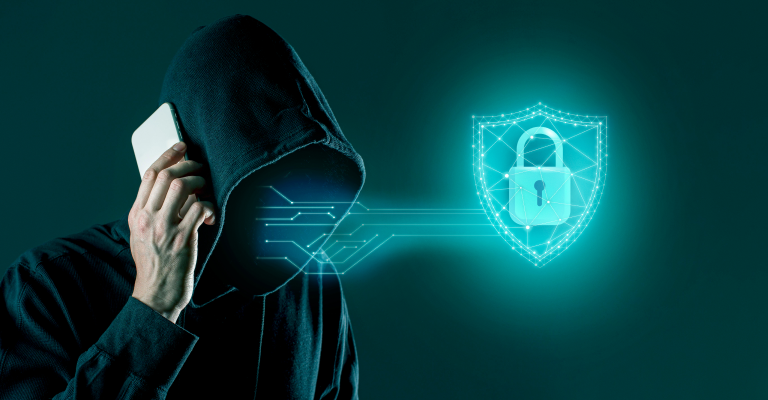Digital identity verification is a key part of our digital world, and its importance keeps growing. A report by Juniper Research predicts that over 70 billion digital identity checks will happen in 2024. This huge number shows how vital digital identity verification is in our everyday lives and many industries.
Digital identity verification is also important because of its big economic impact. According to McKinsey, giving everyone access to a digital ID could add value equal to 3% to 13% of a country’s GDP by 2030.
At Everycred, we focus on using digital identity verification with verifiable credentials to help businesses stay safe from fraud and identity theft. As privacy and data protection become more important, our solutions make it easier for businesses to follow legal rules. We also simplify processes like signing up new customers, making them faster, smoother, and more reliable.
The market for digital identity solutions is growing fast, too. It’s expected to grow from $42.12 billion in 2024 to $133.19 billion by 2030, with an annual growth rate of 21.2%. By automating the process, businesses can avoid mistakes and work more efficiently.
What is Digital Identity Verification?
Digital identity verification confirms a person’s identity online using various methods. It analyzes official documents like passports or driver’s licenses to ensure authenticity, uses biometrics like facial recognition or fingerprint scans to match unique features, and cross-checks data with government records, credit bureaus, and watchlists. Sometimes, it requires active participation, like answering security questions or entering a verification code. Together, these steps create a secure and reliable way to verify identities without face-to-face interaction.
What Are Verifiable Credentials?
Verifiable credentials (VCs) are digital, cryptographically secure representations of information that can be used to prove aspects of an individual’s identity or qualifications. These tamper-evident digital documents are totally changing the way we manage and verify identities in the digital world.
Verifiable credentials are like digital versions of physical documents such as passports, driver’s licenses, or academic degrees. They contain claims about an individual that can be instantly verified without the need for manual checks. VCs typically consist of three key components:
- Credential metadata (e.g., issuer, expiration date)
- Claims about the credential holder
- Cryptographic proofs to ensure authenticity
Role in Digital Identity Verification
Enhanced Security and Trust
Verifiable credentials significantly improve the security of digital identity verification. They use advanced cryptographic techniques to ensure that:
- The credential hasn’t been tampered with
- It was issued by a legitimate authority
- The person presenting the credential is its rightful owner
This cryptographic security makes VCs highly resistant to fraud and forgery, addressing a major concern in digital identity verification.
Streamlined Verification Process
Digital identity verification with VCs is remarkably efficient. Verifiers can instantly check the authenticity of credentials, often within seconds. This speed and efficiency are particularly valuable in sectors like finance, where Know Your Customer (KYC) processes are critical.
User Control and Privacy
One of the most significant advantages of VCs in digital identity verification is the concept of selective disclosure. Users can choose which specific pieces of information to share, without revealing their entire credentials. This granular control over personal data enhances privacy and aligns with modern data protection regulations.
Integration of Digital Identity Verification and Verifiable Credentials
The integration of digital identity verification and verifiable credentials creates a robust ecosystem for secure online interactions:
Issuance
Organizations (issuers) create and digitally sign VCs after verifying an individual’s identity or qualifications. For example, a university might issue a digital degree certificate.
Storage
Users (holders) store their VCs in secure digital wallets on their devices, giving them full control over their credentials.
Presentation
When needed, users can present their VCs to verifiers (e.g., employers, and service providers) through a process called verifiable presentation. This allows for quick and secure identity verification without physical documents.
Verification
Verifiers can instantly check the authenticity of the presented credentials using cryptographic methods, ensuring the integrity and origin of the information.
You Can Also Read This: Digital Identity Verification: Use Cases, Benefits, Standards, and Their Regulatory Implications
Benefits of Verifiable Credentials in Digital Identity Verification
Verifiable credentials bring major improvements to digital identity verification by making online interactions more secure and trustworthy. These digital documents use advanced encryption to ensure information is accurate and protected, offering a reliable way to verify identities across different industries.
Enhanced Security
Verifiable credentials are tamper-proof and secured with cryptography, making them highly resistant to forgery or falsification. Unlike traditional documents, these credentials ensure the authenticity and integrity of shared information. This robust security framework significantly reduces the risk of identity theft and fraud, which caused $52 billion in losses in 2023. By using verifiable credentials, businesses and individuals can trust the information they share and receive, creating a safer online environment.
Improved Privacy and Data Control
Verifiable credentials give users more control over their personal information by allowing selective disclosure. Instead of sharing an entire identity or unnecessary details, users can provide only the specific information needed, like confirming their age without revealing their birthdate. This reduces unnecessary data exposure and minimizes privacy risks. It empowers individuals to protect their sensitive information while meeting the requirements of transactions or services.
Instant Verification and Efficiency
The digital nature of verifiable credentials enables instant verification, dramatically reducing the time and effort needed for identity checks. Traditional processes, like manual reviews of paper documents, are often slow and prone to human error. Verifiable credentials streamline these operations, making identity checks faster and more accurate. This efficiency benefits industries such as finance, healthcare, and government services, where quick and secure verification is critical.
Interoperability and Standardization
Verifiable credentials are designed to work seamlessly across different systems and platforms, regardless of the technology used. This interoperability ensures that credentials issued in one country or organization can be easily verified in another. For example, academic credentials obtained in one country can be authenticated by employers or institutions worldwide. This standardization simplifies global processes and supports the increasingly interconnected digital world.
User Empowerment and Control
With verifiable credentials, users have full ownership and control over their digital identities. Credentials are typically stored in secure digital wallets, allowing individuals to manage and present their information as needed. This self-sovereign approach shifts power from centralized authorities to individuals, enabling them to decide when, where, and how their credentials are used. It fosters a more user-centric and secure identity management system.
Reduced Reliance on Physical Documents
Verifiable credentials eliminate the need for paper-based documents, which can be lost, damaged, or stolen. By digitizing identity verification, these credentials simplify processes like travel, border control, and account opening. They also enhance security by reducing the chances of forgery or errors associated with physical documents. Additionally, moving away from paper contributes to environmental sustainability by cutting down on resource usage.
Enhanced Trust in Digital Interactions
By using cryptographic methods to ensure authenticity, verifiable credentials build trust in digital transactions and interactions. Both parties can be confident in the accuracy and reliability of the shared information. This is especially important as online services and remote interactions continue to grow. Verifiable credentials create a secure foundation for digital trust, fostering confidence in online ecosystems.
How EveryCRED Provides Solutions
EveryCRED offers a secure and reliable way to verify digital identities using cutting-edge technologies like verifiable credentials (VCs) and decentralized identifiers (DIDs). Our platform ensures that digital identities are protected, transparent, and easy to verify, giving users full control over their information.
We support various credential types, including bills, ID cards, and certificates, and customize solutions for industries like finance, healthcare, education, and logistics. With simple API integration and flexible customization, EveryCRED helps businesses improve identity verification and build trust in their online services.
Wrapping Up!
Our platform is leading the way in digital identity solutions which make identity verification more secure, efficient, and user-friendly. By using technologies like verifiable credentials, blockchain, and decentralized identifiers, we provide stronger security, better privacy control, and smooth integration across various industries.
As the demand for trusted digital identities grows, EveryCRED is ready to meet these needs with flexible, customizable solutions. Our platform helps businesses and individuals confidently navigate digital interactions, creating a safer and more reliable online environment. Ready to see how EveryCRED can simplify your digital identity verification? Schedule a free demo with us today and discover the power of secure, seamless verification for your business!

 19th December, 2024
19th December, 2024 



